
views
- Update your resume and look for internships and/or jobs to get a leg up in your career.
- Use the time after college to relax with leisurely activities like crafting or reading.
- Find yourself through traveling, socializing, and new opportunities once you graduate.
Take time off to relax.

Use the lack of responsibilities to rest and recharge. Completing college is no easy task, and you deserve some me-time! Before signing on to that new job or moving to a new place, block out some time in your schedule to do absolutely nothing. Sleep in, rewatch all your favorite movies, binge a new TV show, or read a book. Studies show that taking time off to mentally recharge improves mental stability and cognitive function, so a little relaxation can help you be the best version of yourself.
Spend some time at home to regroup.

A stable environment can help you feel comfortable after graduating. Chances are, you’re feeling overwhelmed by the post-grad unknowns. Spending a little time at home is a great way to slowly ease into your new life and figure out what you want to do next. Reach out to old friends while you're home. It’s always nice to reconnect, and they may even be going through the same things you are. If home isn’t a safe place for you, consider staying with a friend or in a neighborhood you’re familiar with.
Stick to a routine for a sense of normalcy.
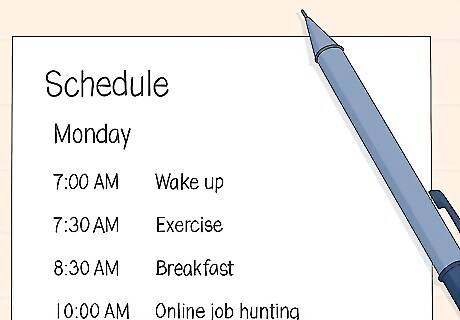
Make and follow a schedule to benefit your overall health. You’ve been following one schedule or another your whole life, so plan out your day like you were still in school—wake up at a certain time, block out hours for job hunting, got to the gym on specific days. Try writing out your schedule in a planner or filling in a digital calendar. Believe it or not, sticking to a routine benefits your mental and physical health. Accomplishing things on your to-do list can feel rewarding, and getting up to move your body helps you feel good inside and out. Make time in your schedule to hang out with friends, as socializing can help improve your mood and ease loneliness.
Start a new hobby to explore new interests.
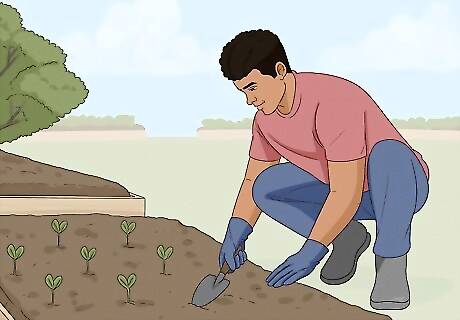
A leisurely or active hobby can help you find a new passion. Transitioning from school to adult life can be overwhelming at times, and a hobby can help ease your mind and let you explore new interests. Try diamond painting, reading, dancing, yoga, or playing a sport to keep your mind busy. Pick a hobby that interests you or revisit something you didn’t have time to do while in school. Try an outdoor hobby or activity like hiking, camping, or gardening, as interacting with nature can help reduce stress and increase focus.
Travel or study abroad.

Discover yourself after college by traveling the world. Have you always wanted to see the world or a different state? Use the time between graduating and starting a full-time job to scratch that traveling itch. Make an itinerary of your own, or sign up to study abroad for a summer semester with your college. There’s no better time than the present, especially when there’s a lull in your responsibilities. Ask your professors or advisors if there are any study abroad opportunities happening the semester after you graduate—there may even be scholarships you can apply for. Take friends or family with you to turn your trip into a post-grad celebration. Consider saving up for your trip a few months after graduation so you can worry less about finances.
Volunteer in your community.

Pass the time and beef up your resume by volunteering. Helping out in your community is a great way to feel involved and part of something bigger. If you're unsure where you want to head next but want to gain practical experience, try volunteering at a library, soup kitchen, church, park, or even daycare. Ask around to see if anyone needs an extra set of hands. Keep a good rapport with who you volunteer for because you never know when you’ll need a job reference. Search for volunteer opportunities in the field you want to work in. For example, volunteering with a local elementary school might help you get your foot in the door when becoming a teacher. Sites like VolunteerMatch can help you find volunteer opportunities near you.
Send in a graduate school application.
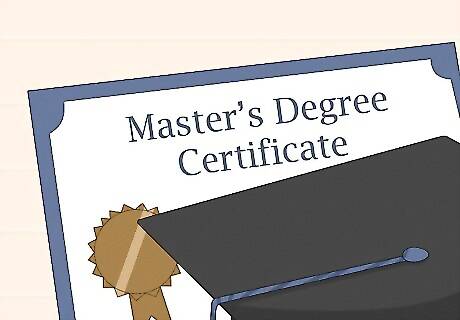
Continue your college journey by applying to graduate school. Are you itching to continue learning and become an expert in your desired field? Use the time after your undergraduate degree to look for and apply to graduate schools. Now that you have one degree out of the way, you can focus solely on the application requirements. Graduate school isn’t for everyone, and that’s okay! Do a bit of research or talk to an advisor to see if earning a master’s degree would benefit you and/or your career path. For a degree like an MBA, it's better to wait until you have some relevant experience under your belt before you start applying. Check your college’s website to see if they have any graduate degree programs. Search online for your degree or career path with the words “graduate programs” to find programs all over the world. For example, if you want a master’s degree in publishing, you’d search “publishing graduate programs.”
Apply for an internship to kickstart your career.
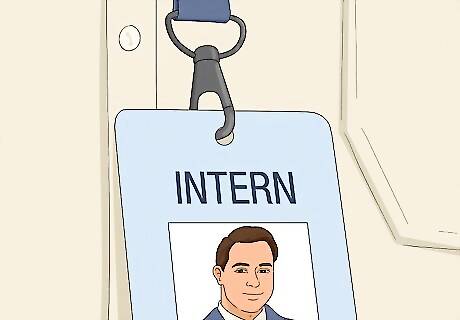
Internships help you ease into the workforce after college. If you have a firm idea of what you want to do with your degree or are weighing your options, consider applying for an internship to beef up your resume. Many entry-level jobs require experience outside of education. An internship can provide you with this experience and help you network. Search for internships near you using LinkedIn, Indeed, or Glassdoor. Not sure if an internship will benefit your career? Ask your college advisor, mentor, or career coach to see if they know of anyone in your desired field you can reach out to. Internships used to be unpaid, but many offer payment and benefits on top of the possibility of future employment. Apprenticeships work similarly to internships but generally last years rather than months.
Take on a part-time summer job for experience.
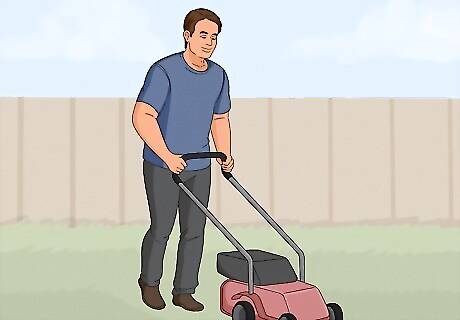
Keep yourself busy and gain experience with a part-time job. There’s no rush to get a full-time job right away after college. While you’re on the hunt or debating what you’d like to do, take on a part-time position that lets you easily balance post-grad life. A side gig can help you stick to a routine while adding more to your resume. Search for jobs on LinkedIn, Indeed, and Glassdoor, or ask friends and neighbors if they need one of the following: Dog or cat sitter House sitter Babysitter or nanny Lawn mower
Freelance your expertise for extra cash.

Hone your craft and make your own hours by freelancing. If you want to travel or chill out before diving head first into the workforce, no problem! Freelancing lets you advertise and sell your work to multiple clients at once, giving you the freedom to perfect your skills and take time off before your next big life decision. Here are the types of freelance work you can consider: Writing Tutoring Project management Graphic design and art Photography Human resources Web development Bookkeeping Advertise your skills on sites like Fiverr, Upwork, Toptal, and Flexjobs.
Start a small business to be your own boss.

Explore the possibilities of being an entrepreneur after school. If you have a creative passion, now’s the time to see if you can build a life from it. Maybe you enjoy painting, baking, or coaching others. Use the free time you have after graduation to make a name for yourself and start a small business. Consider looking into small business grants, scholarships, or partnerships to help fund your project. Grants.gov and SBA.gov are excellent resources for finding grants.
Make finding a job your full-time job.

Update and circulate your resume in your free time to find a job. Take a few hours every day to job hunt, scrolling through job listings and possible career paths in your field. Make a list of all the jobs you apply to, marking the employer's response so that you can keep track of your progress. Sites like LinkedIn, Indeed, or Glassdoor help you find jobs, upload a resume, and keep track of your applications. Consider job shadowing in a desired position for on-the-job training and pre-employment experience. Try not to get discouraged by rejections—they’re a part of the process. You put yourself out there, and that’s what matters! Each “no” brings you that much closer to a “yes.” Remember to be gentle with yourself. It’s important to hustle, but it’s also as equally important to rest.



















Comments
0 comment